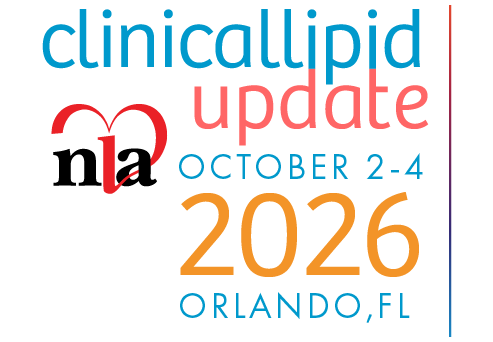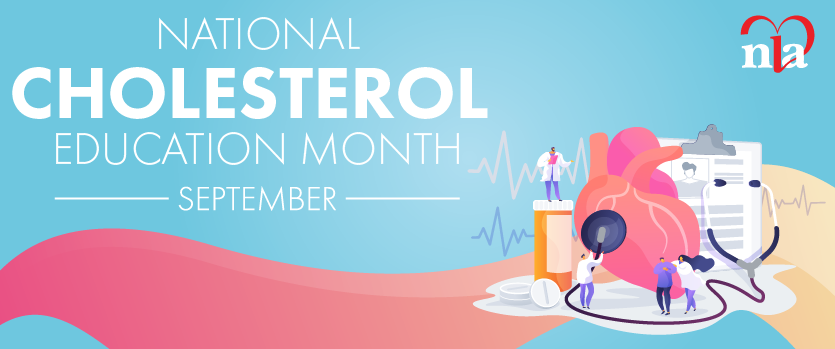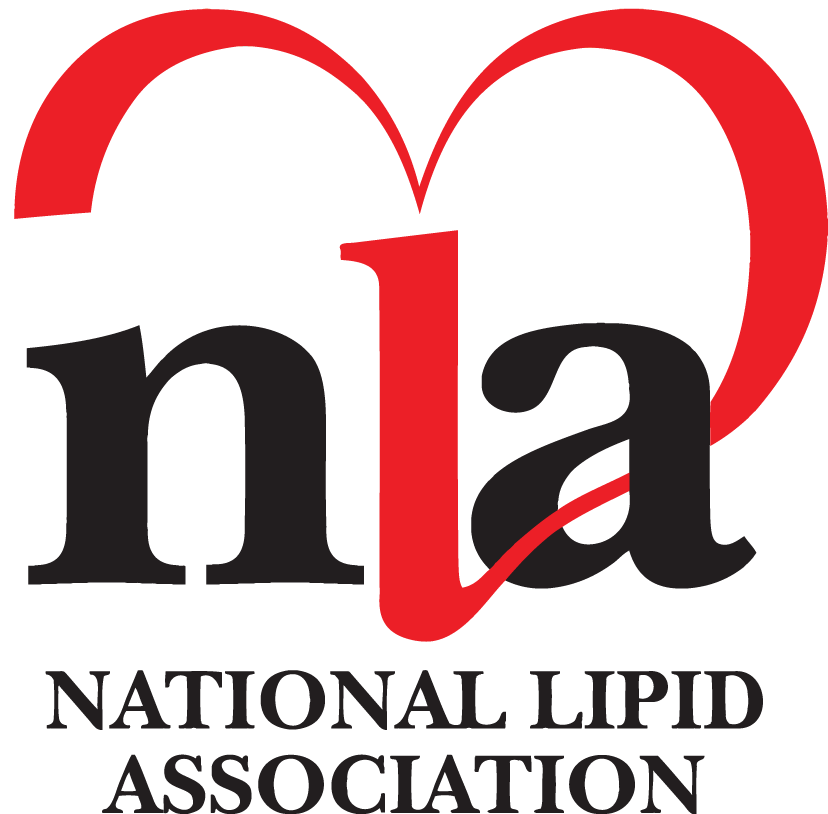From its early beginnings, piecemealed from a variety of medical school textbooks to the latest information readily available at the click of a button, the NLA has experienced tremendous growth in the education of its members, colleagues, and the general public; and recognizing those who have achieved excellence through certification. In the early years, clinicians were provided state-of-the-art recommendations for clinical practice, including relevant research findings, practice insights, and advice about the proper evaluation and management of complex patients, presented by a host of national and international thought leaders. It soon became readily apparent that the management of lipid and lipoprotein disorders represented a unique field of medicine and that the NLA should play a leading role in helping to define the emerging field of Clinical Lipidology. In 2003, the Lipid Clinic Training Program offered by the NLA to its members paved the way for clinicians to learn about the science of Clinical Lipidology and the latest research in the field.
To assist future NLA members and a host of other clinicians actively involved in primary and secondary cardiovascular disease prevention, a self-assessment program (NLA-SAP) was created. Designed to test current knowledge and practice related to lipid and lipoprotein disorders, those who took advantage of the NLA-SAP completed the self-assessment questions and submitted them by mail for grading. Scores and critiques were provided to participants to help identify knowledge gaps and provide appropriate guidance. The SAP provided the NLA with a detailed understanding of its member’s needs and helped target the types of programs and funding required to grow the organization and best serve its membership. The following year, a Masters Course was created and the NLA applied for recognition by the Accreditation Council for Continuing Medical Education (ACCME).
While the NLA was highly praised for providing robust education to those in clinical care, it noted that formal recognition was needed for those with special training, knowledge, and experience in managing lipid and lipoprotein disorders. In the words of Peter H. Jones, MD, FNLA, Past President of NLA and former Chief Science Officer (CSO) said, “The field of Lipidology prior to the inception of the NLA was all about the metabolic origins and systemic clearance of lipoproteins, and the unusual genetic disorders that led to extreme clinical presentations. The remarkably beneficial RCT outcomes with resins, gemfibrozil and statins in the 80s and 90s elevated the recognition/management of dyslipidemias in everyday outpatient care. The NLA pioneered the educational pathways needed to recognize clinicians from all medical specialties as Clinical Lipidologists.”
Consequently, a recognition program was developed to establish a benchmark for all Lipidologists, allowing the NLA to pursue approval by the American Board of Medical Specialties
(ABMS). The program, under the direction of the American Board of Clinical Lipidology (ABCL), was established in 2004 and began the process of certifying qualified clinicians in the emerging field of Clinical Lipidology. Since its conception, over 1,000 clinicians have received the coveted title of Diplomate by the ABCL. Based upon the success of this certification, it was quickly realized that the expertise and invaluable contributions of those in allied health also deserve to be recognized. Thus, the Accreditation Council for Clinical Lipidology (ACCL) was created in 2006 to certify all clinicians as Clinical Lipid Specialists (CLS); similar in scope to the ABCL certification. With an ever-increasing demand for certification, the NLA thoughtfully designed course content to prepare its members to successfully complete certification.
Many milestones have been achieved in the past 20 years. ACCME accreditation enabled the NLA to focus on delivering a variety of high-quality online CME and in-person educational activities. In 2014 the NLA received ACCME Accreditation with Commendation in recognition of its outstanding educational content. This highest honor in accreditation enabled NLA to pursue accreditation for other disciplines starting with the Commission for Dietetic Registration (CDR) and followed by the Joint Accreditation Council in 2016. The Joint Accreditation focused on team-based approaches to healthcare; a fundamental pillar of the organization. In 2020, Accreditation with Commendation was awarded to the NLA and paved the way for numerous partnerships at the highest level. Of these accomplishments, Chris DeVille, Director of Education said, “I’m most proud of my work with the NLA in achieving Commendation status twice in my 11 years with the organization. The expertise of so many volunteers over the years in helping to develop policies, procedures, and reviewing content is what makes this organization so special. There are very few medical societies in the US that can boast its reputation for team-based care and education at the highest level of recognition.”
It is critically important to acknowledge and applaud the support and partnerships that helped make all of this possible. In 2012, the NLA offered a lifetime dues membership, with a portion of the proceeds going towards formal training programs in Clinical Lipidology. Efforts have continued to seek recognition by American Board of Medical Specialties (ABMS), with the ABCL and ACCL certifying a host of very talented and committed clinicians each year. Inquiries from the international community continue to gain momentum with the NLA leading the way in developing educational partnerships and certification of international lipid specialists.
As membership continues to grow, meeting attendance exceeds expectations and the demand for education preparing healthcare professionals for certification expands to newer audiences, the NLA is committed to incorporating state-of-the-art approaches to education. To meet the expanding demand, real-time online activities are being developed. The NLA-SAP, once a paper-based assessment program scored manually, has transitioned to an online program that provides real-time feedback to participants, enhancing learning at the point of contact. The online program has become available in an electronic tablet-friendly format for busy clinicians and available on mobile phone browsers as well. New versions of the original NLA courses, now named the Foundations of Lipidology and the Masters in Lipidology, are available online to provide an immersive experience for those taking the courses. And, more recently, in part in response to changing times and technology as well as restrictions imposed by the pandemic, the NLA successfully demonstrated that a completely virtual meeting, as well as a hybrid virtual-live meeting, can both still attract a generous following of clinicians eager to learn more about the field, even when they are unable to leave their home or office for travel. The ABCL and ACCL followed suit by offering their certification exams online with proctors monitoring the test takers through webcams. Dave L. Dixon, President of ACCL, said, “Conducting certification examinations online made the ABCL and ACCL more available so individuals could take the exam whenever they chose and kept NLA current with the times.”
It is encouraging to see the growing number of new physicians in training coming into the organization. The NLA’s Lipid Scholarship Program (LSP) supports a diverse group of physicians in training to achieve certification through a competitive scholarship program. While completing a residency or fellowship, LSP recipients are given access to educational training, mentored clinical experience in a lipid clinic, online case management discussions, and grants to attend NLA-sponsored scientific meetings. Don P. Wilson, MD, FNLA, President of ABCL, said, “We have been very pleased with the impressive interest in the LSP and exponential growth of applicants. Physicians in training clearly have a passion for prevention and are eager to learn how to help patients avoid CVD-related events. This program is an excellent way for young physicians to become recognized in their communities for their expertise.” The NLA recently approved the expansion of the LSP to other disciplines and foresees additional expansion in the future.
It truly is a brave new world of educational opportunities and the NLA is poised to be there for its membership with the newest offerings. From virtual journal clubs, chapter-sponsored webinars, Twitter chats with tech-savvy members, and more; the NLA continually strives to provide the highest quality education to its members.
And… as if that weren’t enough, the NLA’s education and certification programs will only get better in the future! Currently, the NLA is organizing its pursuit of recognition by the Centers for Medicare and Medicaid Services (CMS) to allowed enhanced The ABCL and ACCL are exploring certification of international trainees and practicing clinicians in a variety of disciplines, consistent with the NLA’s commitment to team-based healthcare.
As an organization, our past suggests we have much to be proud of; while our future suggests we still have much to accomplish. Assuring the health and wellbeing of those at risk of premature CVD reminds us of how important our mission is.
The NLA has and continues to be an internationally recognized leader in preventive healthcare. As an organization, we value the contributions of our members, and take great pride in our team-based approach to clinical care. Our goal is to equip clinicians in a wide variety of specialties and subspecialties, to provide high-quality healthcare in their local communities, through informative and practical educational offerings and networking with leaders in the field of Lipidology.
Article By:
President, National Lipid Association, 2005-2006
President of ABCL
President of ACCL
Director of Education






.jpg)
.png)










